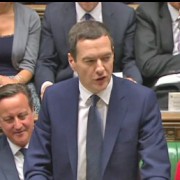Summer Budget 2015 – Key Tax Takeaways
The Summer Budget was announced last week and in this blog post we’ll take a look at only those changes which will affect ordinary taxpayers and SMEs.
In his opening remarks, the Chancellor of the Exchequer, George Osborne, promised:
A Budget … to keep moving us from a low wage, high tax, high welfare economy; to the higher wage, lower tax, lower welfare country.
So, taking each of those goals in turn …
Higher Minimum Wages
With regard to the higher wages promise, Osborne announced that there would be a new National Living Wage of £7.20 per hour from April 2016 for those aged over 25 and over, rising to more than £9 per hour by the year 2020.
Lower Tax
With regard to the lower tax promise, the Personal Allowance (the amount people can earn before paying any tax) will increase – as anticipated – from £10,600 in the financial year 2015-16 to £11,000 in 2016-17. A longer term plan is to increase this still further to £12,500 by 2020. The ultimate ambition is pass a law to make sure that those working 30 hours a week and earning the National Minimum Wage will pay no tax whatsoever, although clearly this will need further clarification in due course.
Dividend tax will also be reformed. Here the existing dividend tax credit (this reduces tax paid on dividends from shares) will be replaced by a new £5,000 tax-free allowance on income from shares from April 2016 and this will be available to all taxpayers. To offset the cost of this to the Exchequer, those with more significant dividend income will see an increase in the tax rate they pay.
Inheritance tax will also be subject to changes from 2017-18. The idea is to allow individuals to each have a ‘family home allowance’ which they can pass on to their children or grandchildren, tax-free, when they die. This allowance will be added to the existing Inheritance Tax threshold currently set at £325k and will potentially allow property up to the value of £1m to be passed down from 2020-21 (see table below). For those with estates valued over £2m the allowance will be gradually withdrawn.
This is how the effective Inheritance Tax thresholds will look in 2020-21: Read more


 On 5 December 2013 George Osborne, Chancellor of the Exchequer, gave his Autumn Statement in Parliament. Key announcements included:
On 5 December 2013 George Osborne, Chancellor of the Exchequer, gave his Autumn Statement in Parliament. Key announcements included: